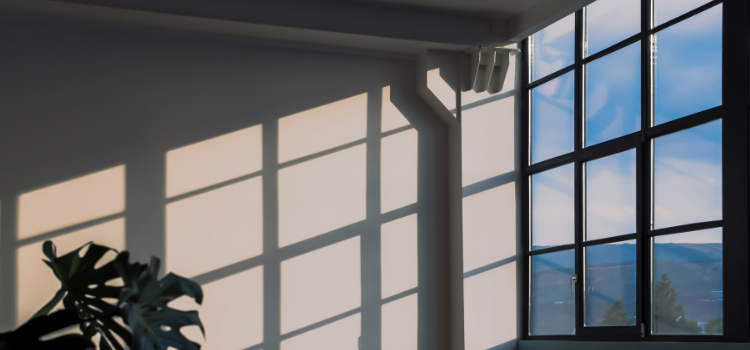
Expert tips for successful window replacement projects
14th Mar '24 • By Emily Ayers
Replacing windows in your home might seem like a straightforward task, but there's more to it than meets the eye. Whether you're upgrading for energy efficiency, aesthetics, or functionality, it's essential to consider several factors before diving into the project.
From understanding the types of windows available to budgeting and selecting the right glazier, here's a comprehensive guide on what you should know before replacing your windows so they can help save you money.
Article Summary
- Understanding Your Needs
- Types of Windows
- Energy Efficiency
- Materials Matter
- Budget Considerations
- Building Codes and Regulations
- Selecting a Contractor
- Installation Process
- Timeline and Disruption
- Maintenance and Care
- FAQs

Understanding Your Needs
Before you start browsing window catalogues or calling contractors, take some time to assess your needs. What are your primary reasons for replacing your windows? Is it to improve energy efficiency, enhance curb appeal, or address functionality issues? Understanding your priorities will help guide your decisions throughout the process.
Types of Windows
There's a myriad of window styles available, each offering unique features and benefits. From traditional double-hung windows to modern casement or bay windows, explore the various options to find the best fit for your home's architecture and your preferences. Consider factors such as ventilation, maintenance requirements, and aesthetic appeal when choosing the type of windows for each room.
Energy Efficiency
Improving energy efficiency is often a significant motivation for window replacement. Energy-efficient windows can help reduce heating and cooling costs by minimising heat transfer and drafts. Look for windows with high energy performance ratings, such as Energy Star certification, Low-E coatings, and multi-pane glass. While energy-efficient windows may come with a higher upfront cost, they can lead to substantial long-term savings on utility bills.
Materials Matter
Windows are available in various materials, each with its pros and cons. Common options include vinyl, wood, aluminium, and fibreglass. Vinyl windows are low-maintenance and affordable but may lack the aesthetic appeal of wood. Wood windows offer timeless beauty but require more maintenance to prevent rot and decay. Consider factors such as durability, maintenance requirements, and aesthetic preferences when selecting the material for your windows.
Budget Considerations
Replacing windows is a significant investment, so it's essential to establish a budget early in the planning process. Consider not only the cost of the windows themselves but also installation fees, additional materials, and any potential structural modifications. Get multiple quotes from reputable contractors to ensure you're getting a fair price, and factor in any potential long-term savings from energy efficiency improvements.
Get free quotes in minutes.
Get quotes from our qualified and licensed tradies Australia-wide.
Building Codes and Regulations
Before replacing your windows, familiarise yourself with local building codes and regulations. Certain areas may have specific requirements regarding window size, placement, and energy efficiency standards. Failure to comply with these regulations could result in costly fines or delays in your project. Work with your contractor to ensure that your new windows meet all applicable building codes and obtain any necessary permits before starting the installation.
Selecting a Contractor
Choosing the right contractor is crucial to the success of your window replacement project. Look for licensed and insured professionals with experience in window installation. Ask for references and check online reviews to gauge their reputation and reliability. A reputable contractor will provide a detailed estimate, explain the installation process, and address any concerns or questions you may have. Don't hesitate to ask for clarification on any aspect of the project before signing a contract.
Installation Process
The installation process can vary depending on factors such as the type of windows, the condition of your home's exterior, and any structural modifications required. A professional installation is essential to ensure that your new windows are properly sealed, insulated, and aligned for optimal performance. Ask your contractor about their installation techniques and inquire about warranties or guarantees on their workmanship.
Timeline and Disruption
Replacing windows can disrupt your daily routine and may require temporary accommodations, especially if you're replacing multiple windows or tackling a large-scale project. Discuss the timeline with your contractor and make arrangements accordingly. Consider factors such as weather conditions, access to the work area, and any additional services, such as painting or trim work, that may be required to complete the project.
Maintenance and Care
Once your new windows are installed, proper maintenance is key to preserving their performance and appearance over time. Follow the manufacturer's guidelines for cleaning and maintenance, and inspect your windows regularly for signs of wear or damage. Address any issues promptly to prevent further damage and ensure that your windows continue to function efficiently for years to come.
Replacing windows is a significant investment that can enhance the comfort, energy efficiency, and aesthetic appeal of your home. By understanding your needs, exploring your options, and working with reputable professionals, you can ensure a successful window replacement project that adds value to your home for years to come. Take the time to research and plan carefully, and enjoy the benefits of your new windows for years to come.
To find out more about your specific window installation needs, get in touch with a local expert today.
Get free quotes in minutes.
Get quotes from our qualified and licensed tradies Australia-wide.
FAQs
How long does the window replacement process typically take?
The duration of the window replacement process can vary depending on several factors, including the size and complexity of the project, the number of windows being replaced, and the availability of materials. On average, a standard window replacement project for a single window can take anywhere from a few hours to a full day.
However, larger projects or those requiring structural modifications may take several days or even weeks to complete. Additionally, factors such as weather conditions, accessibility to the work area, and any unexpected issues that arise during installation can impact the timeline. It's essential to discuss the expected timeline with your contractor before starting the project and to be prepared for potential delays.
What maintenance tasks can prolong the lifespan of your windows?
Different types of windows require different maintenance approaches to ensure longevity and optimal performance. For vinyl windows, regular cleaning with a mild detergent and water is usually sufficient to remove dirt and debris. Avoid using abrasive cleaners or harsh chemicals that could damage the vinyl surface. Wood windows require more maintenance to prevent rot, warping, and decay. It's essential to inspect wood windows regularly for signs of moisture damage and to repaint or refinish them as needed to protect the wood from the elements.
Aluminium windows are generally low-maintenance but may benefit from occasional cleaning and lubrication of moving parts to prevent corrosion and ensure smooth operation. Regardless of the window material, inspecting for any signs of damage or wear and addressing them promptly can help prolong the lifespan of your windows.
What are some potential signs it's time to replace your windows?
While improving energy efficiency is a common reason for window replacement, there are several other signs that may indicate it's time to upgrade your windows. These signs include visible damage such as cracks, warping, or decay, difficulty opening or closing windows, drafts or air leaks around the window frames, condensation or moisture buildup between window panes, and excessive outside noise entering the home.
Additionally, outdated or worn-out windows can detract from the curb appeal of your home and may impact its overall value. You can identify these issues by conducting a visual inspection of your windows both inside and outside the home and paying attention to any noticeable changes in performance or appearance. If any of these signs are present, it may be time to consider replacing your windows to improve comfort, functionality, and aesthetics.
